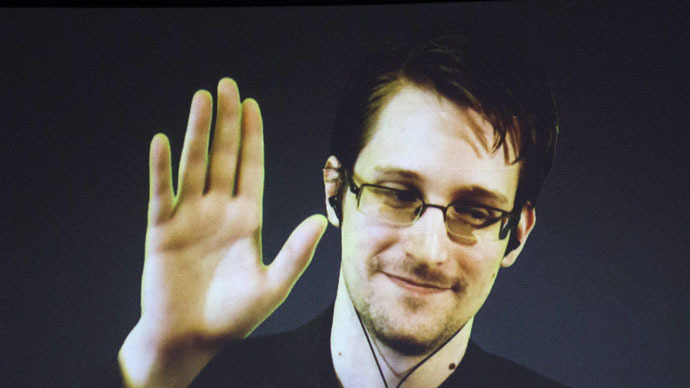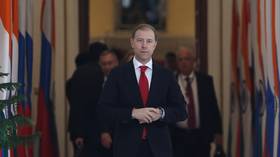‘Snowden will remain criminal for revealing that US spied on its own people’

It’s unlikely that Snowden will ever be removed from the US wanted list, as he told the truth about the “bastion of freedom” that lectures other states while spying on its own citizens, said Matteo Bergamini, director of Shout Out UK.
RT:It’s been two years since the publications of the NSA documents by Edward Snowden. What is the biggest achievement that came out of the revelations?
Matteo Bergamini: I think the biggest issue was simply that he [Edward Snowden] told us what we had no idea was happening - the mass collection of our data. It informed the British people of what was going on and it made it clear what our government’s intention was. So once they did start to go for DRIP Act [Data Retention and Investigatory Powers Act 2014] and other legislation, the British people were prepared and informed and could react to it, instead of just being utterly surprised.

RT:Two years on, Snowden is still a wanted man in the US. Do you see his status there changing in the future? How adequate is the reaction of the US government to what he did?
MB: I don’t think that [the US would ever] not want him simply because he revealed the US as not what they have been trying to cultivate for years- this idea that this place is a democracy, a bastion of freedom, while in reality they’ve been spying on their own people, and that [contradicts] what they’ve been telling other countries to do. Was it an overreaction, or a massive overreaction, what he did? He told the truth. And if that is what the US does to people that tell the truth, I shudder to think what could happen next.
RT:The Freedom Act has just been passed in the US. A part of the Patriot Act that approved phone data collection was eliminated and now that’s something network providers are in charge of. We see a number of similar surveillance legislatures being passed in UK, France and elsewhere in Europe. Is there really a need for data collection?
READ MORE: Snowden leak: NSA uses warrantless web surveillance to watch cyberattacks
MB: There isn’t realistically a need. Arguably, I saw two sides on this: I believe that there could be a potential argument saying that some data collection does need to happen. The reality is that the government is too scared to have a debate about this, or they don’t want a debate about this. In either case we live in a democracy, Americans are supposed to live in a democracy. So how can we justify that if we don’t have a real and proper debate about all these things with all the information [and] the ideas on the table.
I guess it’s a good idea to give the internet providers more power, more legislation rather than the government, because than the power becomes less centralized. But in either case it’s almost like calling everybody criminals until proving [their] innocence. You are collecting somebody’s information when they haven’t done anything. It is an equivalent of the government confiscating everybody’s printed letters for the sake of “Oh, you might have something in that that’s illegal.” We work in a sense that you are innocent [until proven] guilty as far as we understand.
RT:So why don’t the European governments learn from what Snowden had to say?
MB: I don’t think that they didn’t learn from it, I think they are very scared because people are now becoming more and more aware that our governments are doing things behind our backs that we don’t know about. The Snowden thing was a huge leak, who knows what else will come out. The governments are now scrambling to try to cover their tracks by saying: “Well, it’s legal now because the people would have wanted it.”

In fact, if they push for legislation that legalizes what they already did they could turn around and say: “Well, actually, you know, the people wanted it anyway. We have to do it because there was a rush. Now that we’ve …legitimized it - that’s ok, everything’s fine.” So that is why they are pushing this through - not because these laws are needed or because it’s relevant, or because it is something that people want. People don’t want it. That is why they are protesting, that is why Liberty for example has taken the government to court over the DRIP Act; that is why the bill was passed in three days; that is why the latest report that came out quite recently was marked as top secret by the Home Office and the government.
RT:Despite the rise of the debate on mass surveillance, spying still continues. Surely it can’t be banned altogether, but is there a way to curb it?
MB: The only way to curb surveillance is for the people to become more aware, the people need to rally behind prime groups like Liberty and effectively tell the government: “No, we do not want this, we want a real debate on the internet in regard to the legitimacy of the internet; we don’t want to be lied to anymore.”
The statements, views and opinions expressed in this column are solely those of the author and do not necessarily represent those of RT.
The statements, views and opinions expressed in this column are solely those of the author and do not necessarily represent those of RT.












